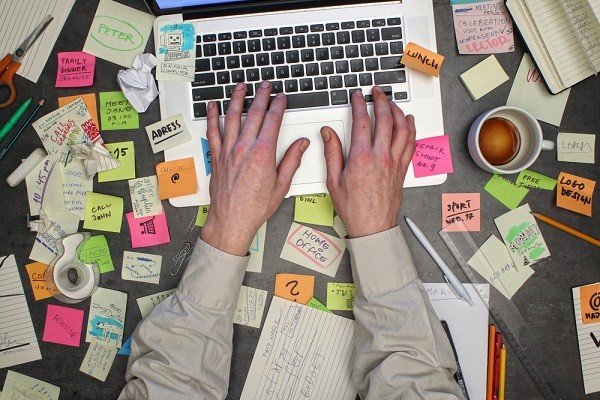Popular Reads
Top Results
Can't find what you're looking for?
View all search resultsPopular Reads
Top Results
Can't find what you're looking for?
View all search resultsYour messy work desk might be giving off a bad impression: Study
Change text size
Gift Premium Articles
to Anyone
New US research has found that messy people may be seen as more neurotic and less agreeable than their tidier counterparts.
Carried out by psychologists at the University of Michigan, the new study recruited around 160 participants and randomly assigned them to one of three experiments.
During the experiments participants were asked to sit in a researcher's office that was clean, organised, and uncluttered and either an office that was "somewhat messy" or "very" messy.
All offices were identical, except for the level of messiness, and included a variety of personal items to suggest that it belonged to a male researcher.
Afterwards, the participants were asked to guess the researcher's personality based on the office's appearance using the big 5 personality traits of extroversion, agreeableness, conscientiousness, neuroticism and openness to experience.
The findings, published in the journal Personality and Individual Differences, showed that participants were more likely to attribute one or more negative personality traits to the researcher who worked in a messy office.
Participants rated the researcher who worked in both the somewhat or very messy office as less conscientious, less agreeable, and more neurotic than the researcher who worked in the organized office.
As high neuroticism, low conscientiousness and low agreeableness are potentially undesirable qualities in an employee, keeping your desk tidy at work could help give off a better impression.
"When there are cues related to less cleanliness, order, organization and more clutter in an owner's primary territory, perceivers' ascribe lower conscientiousness to the owner, whether that owner is a worker in the real world (office), a job-seeker (apartment), a student (bedroom) or a researcher at a university (lab office)," said lead author Terrence Horgan.
"Once trait information about a target becomes activated in perceivers' minds, either consciously or unconsciously, that information can subsequently affect how they process information about, the types of questions they ask of, and how they behave toward the target, possibly bringing out the very trait information that they expected to see from the target in the first place," said study co-author Sarah Dyszlewski.











